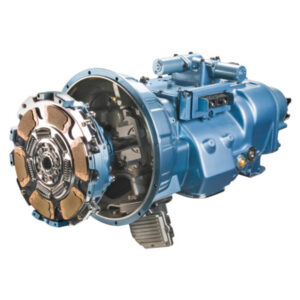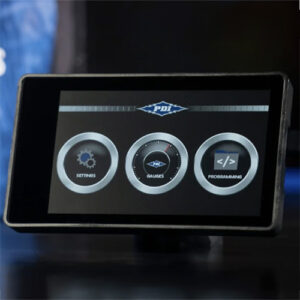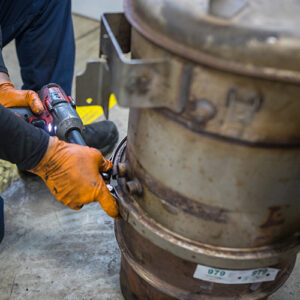Kenworth Truck Repair: Necessary Services to Keep You on the Road
Kenworth semi trucks are known for their outstanding durability. However, they won’t run forever if you neglect your regular and preventative maintenance.
Sticking to regularly scheduled repair and maintenance of your Kenworth truck will help ensure that you get the maximum miles and longevity out of your vehicle.
Here are some helpful Kenworth truck maintenance tips that you will need to be mindful of to keep your truck on the road.
Preventative maintenance is the most effective strategy to keep your truck or fleet operating smoothly and avoid unscheduled downtime.
We have assisted many clients in developing their own unique preventive maintenance plans suited to their Kenworth truck and their specific driving requirements.
Table of Contents
Check your fluid levels
Checking the engine oil, coolant, transmission, brake, power steering, and other under-hood fluids in your Kenworth truck takes just a few minutes and is a simple approach to prevent severe issues.
If you see a drop in fluid level between checks, it’s a good sign that you have a leak or consumption problem.
If caught early enough, this could be a quick repair. So bring your Kenworth into us for truck service, and we’ll get your fluids checked and topped up!
Change your fluids regularly
Your Kenworth truck may consume more oil and fluids depending on several factors:
- How many miles you travel
- The weight of the cargo you transport
- The driving surfaces and conditions (highway, gravel roads, city traffic, etc.)
- How many days of the week you keep your truck running for 24 hours
Replacing your fluids prevents loss of viscosity and build-up of sludge and grit. This allows the oils and lubes to properly move throughout your Kenworth truck’s components, preventing damage and deterioration due to friction and grind.
When replacing fluids on a heavy-duty truck, always follow the manufacturer’s instructions.
Trying to squeeze more life out of your fluids may save you money in the short term, but it will cost you much more in breakdowns and repairs in the long run.

Check our tire pressures
Any Kenworth operator will tell you that regularly checking the tire pressure is essential and should be a standard part of your driver’s daily truck inspection.
Your tires are your only point of contact with the road, and you want to keep them properly inflated at all times to minimize uneven wear, optimize fuel efficiency, and give the best traction, braking, and load-carrying capability.
Inspect your tires for wear
You need to regularly inspect for uneven tire wear caused by low tire pressure, alignment, or suspension difficulties.
Tire inspections need to be done as part of your Kenworth truck’s repair and preventive maintenance routine. This inspection needs to include checking your tire condition and tread depth.
We all know how dangerous a tire blowout on the highway can be, so examine your tires often to minimize risk.
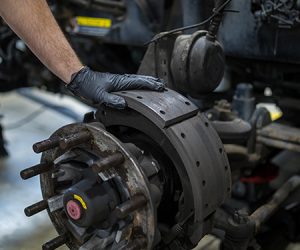
Examine your brakes
When you’re hauling a heavy load, you want to be sure you can stop safely.
Check your Kenworth brakes regularly and replace them when they show signs of wear. Look for equal wear from front to back and side to side.
This might indicate that your brake system is unbalanced, and you need your Kenworth truck repaired to offer proper braking performance.
Examine your air filters
A clean air filter may help your engine operate more smoothly while lowering your fuel usage. When a filter becomes clogged, it reduces the quantity of air that enters your engine, diminishing power and fuel efficiency.
Regularly inspect and replace your air filter as part of your Kenworth truck’s repair and maintenance if you frequently travel on unclean, gravel, or dirt roads.
Verify your electrical system and perform a battery load test
The electrical system in your Kenworth truck is put to the test by long-distance travel and numerous stops and starts.
It’s good to include your battery, alternator, and electrical system in your annual preventive maintenance checklist. If you work in a colder region, a pre-winter inspection is best to minimize charging issues.
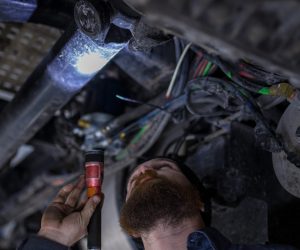
Examine your gearbox and clutch
With high-torque engines and large loads, your gearbox and clutch are tested every time you hit the road. Regularly inspecting your gearbox and ensuring that it is in good working order will help you detect issues early on. You’ll also want to make sure your clutch isn’t sliding since this may impact both dependability and fuel efficiency.
Examine your outside lighting
Before hitting the road, do a quick walk-around inspection of your external lights to detect any burned-out bulbs and replace them.
Check that all of your running, braking, signal, and hazard lights operate correctly as part of your preventive maintenance to avoid getting pulled over and losing time due to a burned bulb.
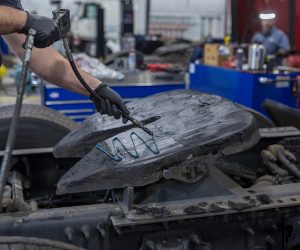
Service your fifth-wheel platform
If you can’t correctly connect up your trailer, problems with your may slow you down and perhaps keep your vehicle off the road.
You should examine your platform regularly and grease/adjust it as needed as part of your Kenworth truck repair & maintenance. Clean any accumulated debris from the platform mechanism and look for excessive wear or replacement components.
Use a high-mileage lubricant
The older your Kenworth truck grows, the more critical truck maintenance becomes. When your truck’s odometer reaches 75,000 miles, high-mileage motor oil might help it function better.
Why do you need high-mileage oil? Because high mileage motor oil contains conditioning agents and additives that may help prevent leaks, dissolve engine sludge, and enhance fuel economy!
Furthermore, the unique features of high mileage oil give more lubrication, which preserves the function of your older truck’s components.
Personalize the way you take care of your Kenworth truck repair
It is a good idea to personalize how you take care of your Kenworth truck. You know your truck best, and you can use that understanding to develop the best possible truck care plan.
Final words
Kenworth operators and fleet managers all have trucks with unique work demands and load requirements.
Because of this, it’s important to tailor a custom Kenworth truck repair and preventive maintenance schedule specific to the truck or fleet.
Incorporating these 12 suggestions into your checklist will help guarantee that your vehicles perform more consistently and are less prone to breakdowns.

